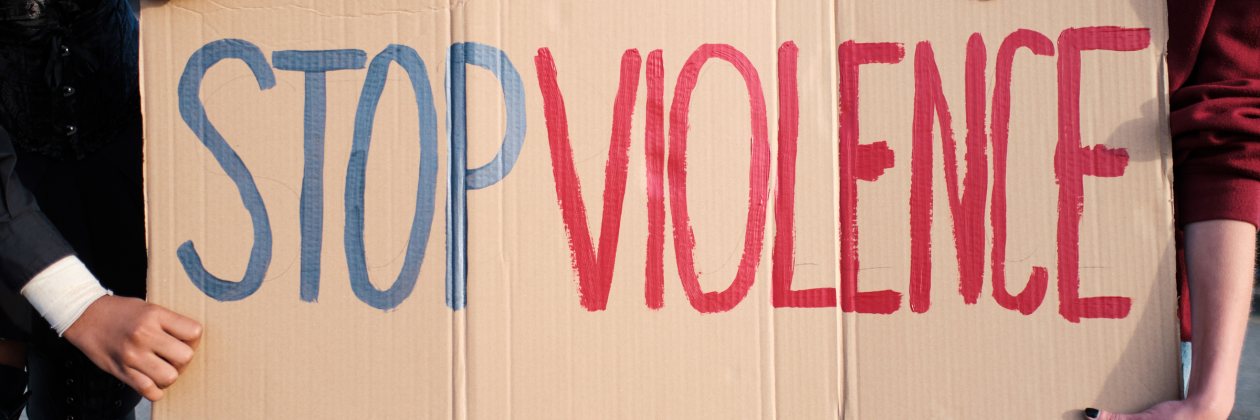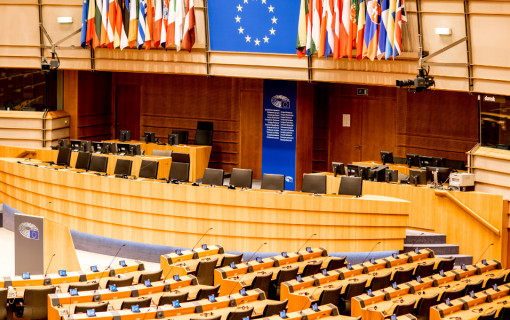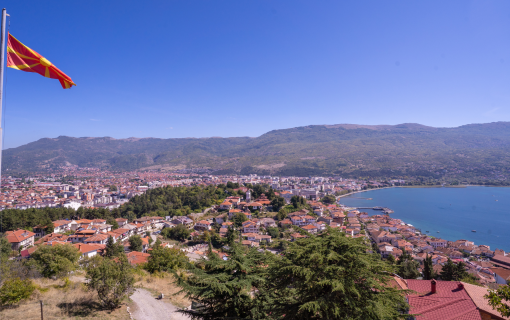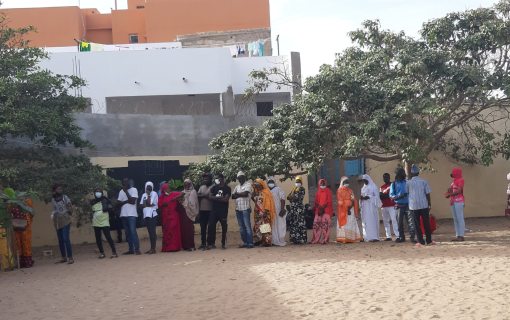
Violence Against Women in Elections in Papua New Guinea
An IFES Assessment
Executive Summary
The International Foundation for Electoral Systems (IFES) conducted its second Violence Against Women in Elections (VAWE) Papua New Guinea (PNG) Assessment in 2022 following the national general elections. IFES conducted the first VAWE assessment—the first of its kind in PNG—in 2018, following the 2017 elections (the report was published in 2019). This report assesses VAWE in PNG, drawing on fieldwork, research, and IFES’s experience operating in PNG. It presents recommendations for mitigating and preventing VAWE in the future. These recommendations are not substantially different from those included in the 2019 report. What does this tell us? Patriarchal social norms, gender inequality, gender-based violence (GBV), and patron-client politics continue to be pervasive, resulting in family and bloc voting, bribery, and intimidation that effectively disenfranchise women, people with disabilities, and the elderly.
The Papua New Guinea Election Commission (PNGEC) has made progress in combatting VAWE by providing separate polling lines and polling booths at the majority (76.4 percent) of polling locations that Transparency International PNG (TIPNG) observed. This was a significant improvement over the 29.9 percent of such accommodations seen in 2017. Greater gender parity was also observed among electoral officials and security officers at polling and counting centers.
The PNG government, writ large, only started to better resource GBV policies over the last two years, since the establishment of the Special Parliamentary Committee on GBV. The committee’s hearings and reports, published in 2021 and 2022, brought national attention to the government’s failure to act substantially on GBV since the passage of the Family Protection Act in 2013. The reports also drew attention to PNG’s reliance on donor-funded initiatives to support survivors of GBV. The government acted on some of the committee’s recommendations, including allocating funds to implement the PNG National GBV Strategy and criminalizing sorcery accusation-related violence (SARV is a form of violence that is generally perpetuated against women and girls who are accused of sorcery) in 2022.
Ahead of the 2022 national elections, Prime Minister James Marape proposed amendments to the Firearms Act that were quickly passed on April 21, 2022, and signed into law on May 161 (just three days before the nomination period for candidates in the national elections closed), with the hope that new, tougher penalties would help curb electoral violence. Unfortunately, these tougher penalties were unsuccessful at deterring electoral violence. As in the 2017 election, PNGEC funding did not cover sufficient policing at polling and counting centers, making most electoral security reactive rather than proactive. In 2022, around 50 people were killed in election violence, far fewer than the 204 deaths seen in 20173. However, far more people were impacted in 2022 when election violence2 triggered intercommunal violence on a large scale, displacing up to half the population in three Highland provinces. Internal displacement disproportionately impacted women and children; 70 women and girls were reported as raped, kidnapped, or victims of SARV during the 2022 elections alone4.
Law and order during elections is a serious issue that needs to be addressed. For example, in the Highlands region, candidates’ and their supporters’ stockpiling of illegal high-powered firearms in the lead-up to elections has become the norm. There are concerns that the violence experienced in areas not considered hot spots in the 2022 national elections may become normative as well. The PNGEC and the Inter-Departmental Election Committee will face challenges in addressing these issues. The work of the Special Parliamentary Committee on Electoral Reform offers an opportunity to reflect on pervasive election issues.
[1] Firearms (Amendment) Act 2022, Papua New Guinea
[2] Kuku, Rebecca. The Guardian. 2022. PNG election violence: 90,000 displaced since May, 25,000 children unable to attend school. September 28, 2022.
[3] Chandler, Jo. The Guardian. 2018. Unprecedented violence and fraud ‘hijacked’ 2017 PNG election – report. October 29, 2018.
[4] U.S. Department of State. 2022. 2022 Country Reports on Human Rights Practices: Papua New Guinea. March 20, 2022.
Table of Contents
- Status of Women
- Women’s Access to the Electoral Process
- Violence Against Women in Elections
- What is Violence Against Women in Elections?
- Assessment Factors
- Primary Data Collection
- Primary data collection methods
- Limitations on Data Collection
- Geography, Demographics, and Cultural Norms
- History and Political Landscape
- National Legal Framework and International Commitments
- National Commitments
- Gender-Based Violence Laws
- Firearms Amended Act 2022
- International Commitments
- Freedom of Expression
Factor 1: Status of Women
- Current status of women in PNG society
- Christianity, masculinity, and GBV
- Women’s role in decision-making
- Gender-Based Violence in PNG
- Types of Gender Based VI
- Sexual and intimate partner violence during the COVID-19 pandemic
- Services for survivors
- Lack of justice for survivors
Factor 2. Women’s Access to the Electoral Process
- Social and cultural gender norms
- Regional Differences
- Highlands Region
- Momase, New Guinea Islands, and Southern Regions
- Family and bloc voting
- Separate Lines for Women
- Bribery and intimidation
- Barriers to women candidates and MPs
- Women speaking out against undemocratic practices
- Women election officials, state security officials, and scrutineers
Factor 3. Violence Against Women in Elections
- Campaign period
- Private and public violence against women voters
- Private and public violence against women candidates
- SARV
- Reporting acts of violence against women in elections
- Improve civic and voter education to inform women of their rights and promote gender equality in culturally responsive ways.
- Pass the amended OLIPPAC to ensure that 10 percent of candidates supported by political parties are women.
- Create an enabling environment for women to vote and campaign free from intimidation.
- Provide surge support for GBV service providers during the campaign to the post-election period.
- Increase and sustain support for police and GBV providers; improve access to justice.
- Stem the tide of gun violence in PNG










